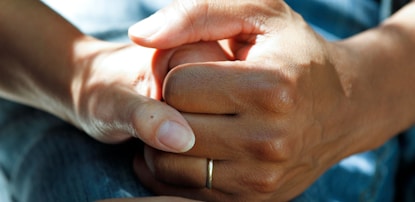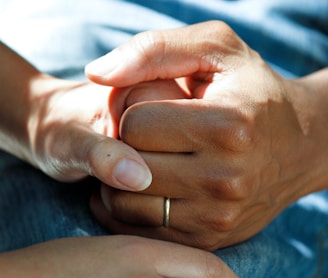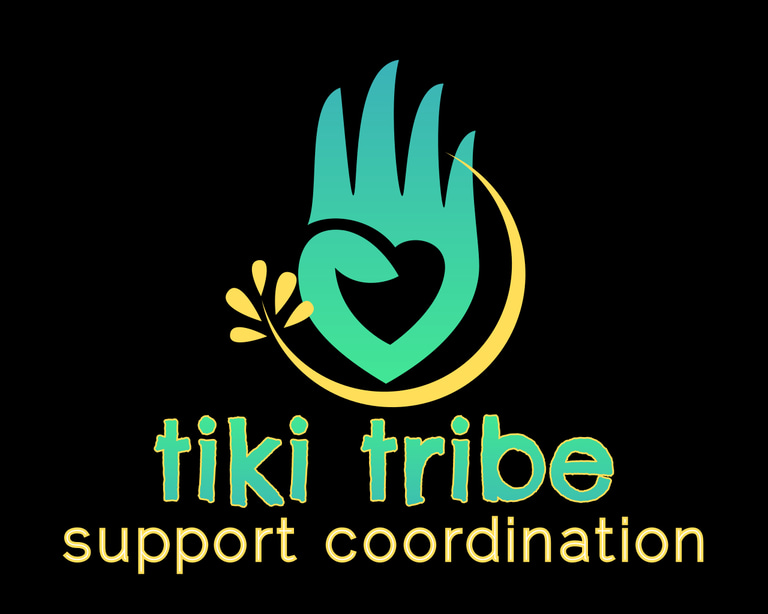Carer's Burnout & Stress
Are you a Carer at risk of burnout? It's common and there are many others in the same situation. Some real life experience at the end with helpful hints and tips on working through this...
5/15/20237 min read


Years ago, I was Superwoman. Without the cape.
I had 8 kids at home and was working full-time, the youngest were on the Autism spectrum to varying degrees, the youngest severely so with intellectual impairment on top. I created and ran our local junior & senior rugby league clubs, I coached gymnastics and netball and was on the Committee, I played touch rugby and netball. I played with my kids. If you had a problem, I was there. I helped everyone. I was unstoppable! I thought.
I don’t know when I realised that my previous energy and empathy levels seemed to have left me. Just trying to summon up the energy to do all that I used to do was just not possible anymore. I still said ‘yes’ to helping everyone… but I didn’t do it well, and it showed.
I started to feel like a failure. I realised that my other children were missing out on things because I couldn’t take everyone everywhere, at any time as I used to and that life revolved around my youngest with the most severe needs. I started to feel guilty that I wasn’t meeting their needs. By the time the others had grown and left home, my youngest had stopped being invited to parties. The differences between him and his peers became more pronounced. I took that sadness and rejection on board for him. It hurt.
Physically over time, I noticed that I didn't have the passion to do all of the sports I used to do either. I felt depressed and anxious and worried about the future, all on top of the guilt and the feeling of failure. I had no interests outside of home anymore because my life revolved around my caring at home and making enough money for me to keep a roof over my family’s head.
The thought of socialising filled me with dread and many times when I got dressed up for something, I would call and say I had had an emergency and couldn’t make it, when really I just couldn't manage to take even a step outside towards people. So I stopped my netball and touch rugby. I withdrew my involvement in the Community sports that I had volunteered so much time at. I pulled away from my own personal networks and social life. I became isolated. I went to work, and I came home to care and clean and cook and provide for everyone. I was no longer me, I was ‘Mum’, Caregiver, and employee, but not me anymore. My sleep became erratic, leading to moodiness and headaches.
I still carried on. Reluctantly. There was no one else. Add isolation to guilt, anger at the unfairness, feeling of failure, depression, hurt, anxiety, anti-social lifestyle, insomnia, physical presentations of stress, moodiness and no outside interests any longer.
Life was no longer fun. It was a chore. It felt like a huge hole I couldn’t see my way out of.
Can you see the pattern here?
Who is a Caregiver?
A Caregiver or Carer is someone who provides unpaid care and support to other family members and/or friends who may also have a disability, mental illness, chronic condition, terminal illness, an alcohol or other drug issue or who are frail aged.
Caregivers play a crucial role in the lives of those they care for, but also in the community.
“There are only four kinds of people in the world: Those who have been caregivers. Those who are currently caregivers. Those who will be caregivers, and those who will need a caregiver.” – Rosalyn Carter
What is Caregiver Burnout?
Being a Caregiver can strain even the most resilient people.
Caregiver burnout (sometimes described as compassion fatigue) is a condition that occurs when a carer becomes overwhelmed by the stress and responsibility of caring for a loved one. As a Carer, you are more likely to experience symptoms of physical, emotional and mental exhaustion, isolation, feeling unsupported, unappreciated, frustrated, sad, depressed and anxious. In addition, you may not get enough sleep or physical activity, or eat a balanced diet.
Signs of Caregiver Stress and Burnout
As a caregiver, you may be so focused on your loved one that you don’t realize that your own health and well-being are suffering. Some of the warning signs of caregiver burnout include:
Feeling overwhelmed or constantly worried
Feeling tired often
Getting too much sleep or not enough sleep
Gaining or losing weight
Becoming easily irritated or angry
Losing interest in activities you used to enjoy
Feeling sad
Having frequent headaches, bodily pain or other physical problems
Abusing alcohol or drugs, including prescription medications
Seeing any pattern now?
Strategies to help you deal with and prevent Caregiver burn-out
It is vital that you take advantage of the many resources and tools on hand. These may look like the following – and again, break these down into single steps if you have to.
Start with one and build up as you can..
Say YES to the help offered or ask
Be prepared with a list of ways that others can help you, and let the helper choose what he or she would like to do. For instance, a friend may offer to take the person you care for on a walk a couple of times a week. Or a friend or family member may be able to run an errand, pick up your groceries or cook for you. Can you divvy up chores required within your own family?
Focus on what you are able to provide
It’s normal to feel guilty sometimes, but understand that no one is a “perfect” caregiver. Believe that you are doing the best you can.
Make your goals realistic
We get overwhelmed and become unmotivated, frustrated or stop altogether when our tasks are too big. Break your tasks down into small steps. Start one at a time. Prioritise your task list and try and keep to a routine. Do not have unrealistic expectations of yourself.
Learn to Say NO
Practice saying no to requests that you really can’t manage. You set yourself up for failure when you say yes to a request that you know you will struggle to fulfil. Make those goals achievable to start with, then build from there.
Networks
Find out about Caregiver providers in your community. Community Caregiving services such as transportation, meal delivery or housekeeping may be available to you that will give you a much-needed break.
Respite Care Services
Again, the Caregiver providers above may have the availability to provide respite care for the person you care for.
Support groups
Caregiver support groups can provide validation and encouragement, as well as problem-solving strategies for difficult situations. People in support groups understand what you may be going through. A support group can also be a good place to create meaningful friendships. There are also many online support groups you can look into.
Seek social support
Make an effort to stay well-connected with family and friends who can offer non-judgmental emotional support. Set aside time each week for connecting, even if it’s just a walk with a friend.
Set personal health goals
Taking care of your physical health will help to improve your mental health and well-being. For example, set goals to establish a good sleep routine, find time to be physically active on most days of the week, eat a healthy diet and drink plenty of water. Water is so underrated, but did you know that lack of water can add to anxiety? Try drinking some next time you feel it coming on.
Get enough Sleep
Many Carers have issues with sleep patterns. Not getting quality sleep over a long period of time can and will cause health and mental health problems. If you have trouble getting a good night’s sleep, talk to your doctor.
Get back to Nature
Walk on the beach, go paddle in a creek, walk barefoot on the grass. Breathe.
See your doctor
Make sure to tell your doctor that you’re a caregiver. Don’t hesitate to mention any concerns, signs or symptoms you have.
Look after your Mental Health
Talk to your GP or healthcare professional about getting an appointment with a Counsellor or Psychologist. This will assist in providing you with valuable coping methods to manage and increase your enjoyment of life.
You are NOT alone.
What I did to improve my Carers stress....
If you’re like most caregivers, you have a hard time asking for help. Know this…
It’s okay to put your hand up and reach out for some assistance. If you don’t take care of YOU, you won’t be able to care for anyone else.
As for me, I started small and made some changes to better look after my health and mind.
NDIS Supports
I talked to a Support Coordinator and a Support Services company and with their advice and assistance, utilised the funding received from the NDIS Plan to establish my child’s Capacity Building Therapy and low-cost Assistive Technology items, which really started to make a difference.
Community Supports
I found that Equine Therapy and animals helped both myself and my youngest to maintain good mental health and it also assisted my son to progress with his behaviours, focus, physical strength and motor skills and speech. His first sentence at 7 years old? “Horsey done wee’s”. I also used my Community support by joining Disability groups I found on Facebook that was run by other parents going through the same sorts of issues as I was. I made FRIENDS with other parents who had children who loved to be around my son and now invite him to parties!
Mainstream Supports
I used my mainstream supports to see my GP and get a referral to a Psychologist to discuss coping methods for me when things got really overwhelming. I also had the option of using my EAP through my work for extra sessions when those appointments ran out.
Informal Supports
I used my informal supports - family and friends - to share my child’s wins and losses, and to get the occasional respite – I put up my hand, and I reached out. I also realised that being inside all day in an office environment increased my low moods and anxiety, and I need to be outside for a good portion of the day or night to feel right.
The Result?
I moved to the country, bought the cheapest farm possible and now we live surrounded by the animals that made such a difference to our peace of mind. We play with dirt, swim in the dam, eat from our own garden – we got back to basics. We found our laugh again. And for the first time in such a long time, I feel happy. My son has just attended his second-ever school camp this year and has friends, he’s playing rugby (of a sort lol) – which I never thought possible – and is the happiest kid around.
We still have our journey to travel, but I am a lot better equipped to deal with it now, and my not-so-little man is progressing beyond my wildest dreams. Be kind to yourself. My journey will not necessarily be your journey. Find your happy place again.
The Carer Gateway provides information and advice on the in-person and online supports available to carers across Australia and has a great range of services, including Respite. To find out more, and to access online support services, head to carergateway.gov.au or call 1800 422 737.
Carers QLD also has a special Carer Wellbeing program Carer Health and Wellbeing Program - Carers Queensland (carersqld.com.au) or
you can call 1300 747 636
